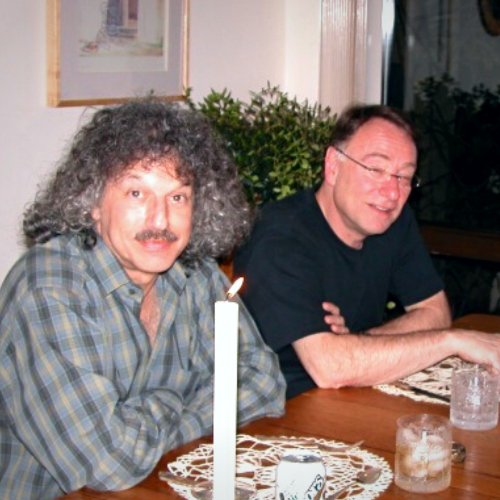by Robert W. Levenson, University of California, Berkeley
As many of you know, Alan Kraut is stepping down after serving for six years as the Executive Director of PCSAS. This is truly a bittersweet moment for us all. On the one hand, we will greatly miss Alan’s steady hand, tireless energy, sophisticated knowledge, and sense of fun, all of which have helped define the culture of PCSAS. But we also respect his desire to move on to his own next chapter and wish him great happiness and success in whatever comes next. Fortunately for us, Alan has offered to continue working with PCSAS as we pursue our goals on a number of policy-related fronts including licensing parity, recognition, and building stronger relationships with governmental agencies and other organizations.
My own experience working with Alan stretches back over many decades starting when he was the Executive Director of APS and I was a member of the APS Board and later President. These are decades filled with wonderful memories, important accomplishments, and growing friendship. In working with Alan over the years, one consistent and unwavering theme has been his deep interest in empowering students. For PCSAS, this has been reflected in our always having a student member serving as a full member of the Board of Directors and having our students play an important role in our efforts to achieve parity and recognition. Two recent highlights have been the PCSAS newsletter (spearheaded by our remarkable duo of Christine Bird and Tiffany Jenzer), which has become an important voice speaking out on important issues affecting our training community and beyond, and PCSAS students helping us document the range of involvement that our programs have with the military as part of our negotiations around recognition by the Department of Defense. I know how important these efforts by PCSAS students have been to Alan, how proud he is of the quality of our students, how much he has valued your contributions, and how much satisfaction and joy he has derived from working with you.
As Alan transitions into this new role, we are delighted to have Joe Steinmetz assuming the role of PCSAS Executive Director starting on November 1, 2021. Joe’s experience, stature, and longstanding commitment to clinical science make him the ideal person to take over this important position. Among the many highlights in his long and distinguished career, Joe served as the Chair of Indiana University’s Department of Psychology, where he worked closely with Dick McFall in building their trailblazing program that integrated neuroscience and clinical science. After leaving Indiana, he served as the Dean of the College of Liberal Arts and Sciences at the University of Kansas and then moved to The Ohio State University, where he served initially as Executive Dean of Arts and Sciences and Vice Provost for Academic Affairs and later as Executive Vice President and Provost. During this period, he served for 10 years on the PCSAS Board of Directors, where he had an invaluable and positive influence on PCSAS’s growth and development, and as a Board member and President of APS (at a time when APS support for PCSAS was particularly critical). From 2016-2021, he served as Chancellor at the University of Arkansas. In all of these roles, Joe has worked closely with students and shares our commitment to deep student involvement in PCSAS and to helping prepare our students for positions of future leadership in the field of clinical science.
I hope you will all join me in giving our thanks to Alan Kraut for his distinguished service and inspired leadership and in welcoming Joe Steinmetz into his position as our new Executive Director. PCSAS has been extremely fortunate to have people of their stature committed to our efforts and to working together with our remarkable students to foster the growth and development of PSCAS, improve clinical science training and the science that ensues, and work tirelessly toward our ultimate goal of fostering significant improvements in mental health.
Disclaimer: The views and opinions expressed in this newsletter are those of the authors alone and do not necessarily reflect the official policy or position of the Psychological Clinical Science Accreditation System (PCSAS).


